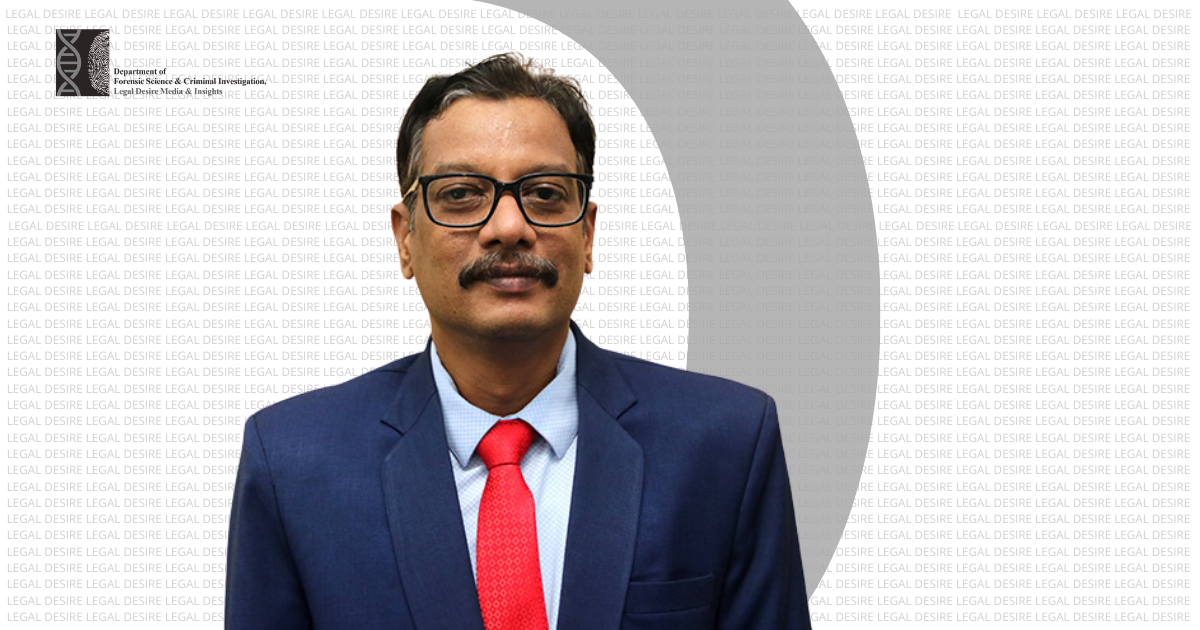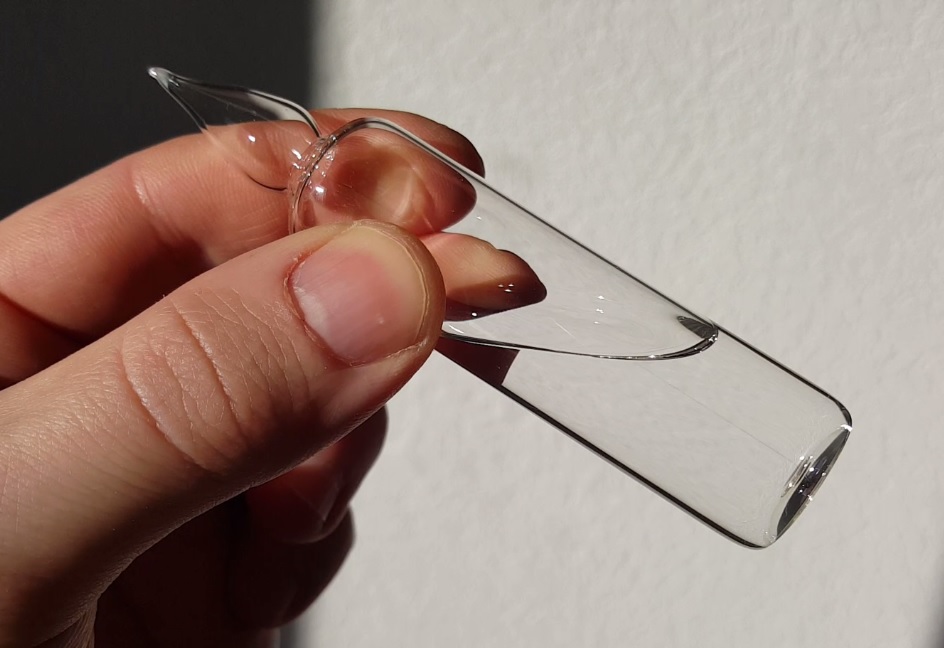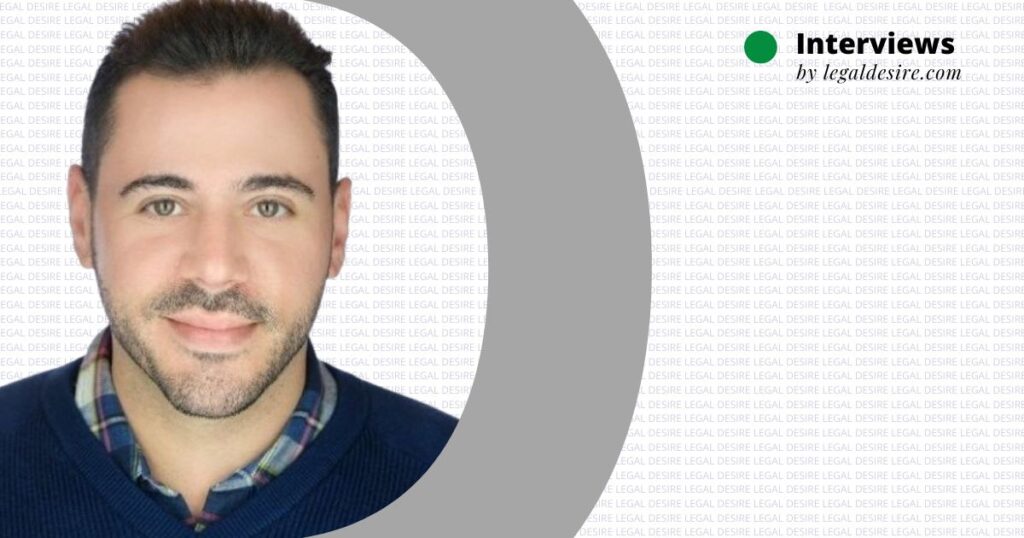Now Reading: In Conversation with Dr. G. Rajesh Babu, Centre Head at International Centre for Humanitarian Forensics [ICHF], Associate Prof, School of Forensic Science, NFSU, Gujarat, India
-
01
In Conversation with Dr. G. Rajesh Babu, Centre Head at International Centre for Humanitarian Forensics [ICHF], Associate Prof, School of Forensic Science, NFSU, Gujarat, India

In Conversation with Dr. G. Rajesh Babu, Centre Head at International Centre for Humanitarian Forensics [ICHF], Associate Prof, School of Forensic Science, NFSU, Gujarat, India
Dr. Govindarajulu Rajesh Babu is currently Centre Head of International Centre for Humanitarian Forensics and an Associate Professor in the School of Forensic Science at the National Forensic Science University, Gandhinagar. He had served as a Lecturer of Forensic Medicine and Toxicology in Sri Siddhartha Medical College, Tumkur, under the Rajiv Gandhi University of Health Sciences, Bangalore from 26th September 1996 to 25th July 2009. He has a doctorate in Anthropology from the Central University of Pondicherry. He has been in academics since September 1996. He has been a member of various professional organizations. He has published and presented over 44 papers in various international and national journals and various conferences. He has also contributed seven chapters in a book titled “Principles and Practices in Contemporary Forensic Sciences, and published over 8 articles in popular magazines/media. He has been involved in various research projects. He has contributed as a forensic expert on framing Policy guidelines for the state on scientific disaster management with the Gujarat Institute of Disaster Management. He has been a University recognized guide for Ph.D. scholars, master’s degree, and PG diploma students. He has been invited to various talks and organized various international conferences and workshops. He has been delivering expert/guest lectures for the judicial officers, the police officers, and colleges. He has been training the officers of the Iraq, Myanmar, Bangladesh, Nepal Police and Forest officers of SAARC (Srilanka) countries and officers of other countries deputed under the ITEC scheme on various techniques in criminal investigation and also in the areas of Anthropology, Ballistics, Fingerprints and crime scene analysis, and students of Albany University. He has been a member of the Board of studies, faculty for academic programs, expert panel, academic council member, examination result committee, and coordinator for various courses in the Universities. He had been Chairperson and guest of honour in the national and international conferences. He has developed a curriculum for the course of PG diploma, master’s degree program, and fingerprint sciences course in University of Cape Coast Accara, Ghana in November 2018. He had set question papers for the Public Service Commission for the post of Scientific Officer and Scientific Assistant in FSL of Punjab and Karnataka 2014 & 2018. He has rendered consultancy service in India and Abroad and also a Coordinator for the Centre of Excellence for Humanitarians Forensics, a joint venture/initiative with the ICRC. He has been Examiner for the Ph.D. and M.Phil Examination. He has been representing Intra University as a committee member. Here’s an exclusive conversation with him:
What inspired you to join the Forensic domain as an academician during those early days, when there wasn’t much awareness about Forensics?
In those days there were hardly any options left for the science graduates. By default, they were either entering into the master’s program in the same subject. Then there were a negligible number of students entering into research work after that. Otherwise, they were enrolling themselves the bachelor of education to become teachers. The graduates were swifter in getting themselves employed in the government services such as banking, public service commission and so on, through special coaching or through self-studies.
As there was one such field that I came to know was the masters’ degree in forensic science. It was very unconventional in its curricular structure with a mixture of subjects ranging from criminology, police administration, law, medicine, ballistics, serology, toxicology, fingerprints, questioned documents and so on. This was found to be very much explorative and professional oriented. There was a sense of having attained some achievement when getting admission into this course. There was also a scope that entry into the government service through this was also a good option as it was limited to field for the employment. Moreover, this course was being offered by few universities as a curriculum. There was a tough competition to enter into it as it was open for all the science graduates. So naturally there was a feeling of satisfaction to have entered to this course.
As there was least awareness to this course it was a blessing in disguise. The competition is supposed to be lesser unlike others.
You have been a member of Board of Studies for various colleges and universities & developed the curriculum for various UG, PGD & PG courses. It has been observed that many students studying the Forensics & Investigative sciences, often complain that many things aren’t applied in the real world while dealing with the case evidences from crime scene to the lab. What do you think about this?
It is a popular notion that forensic/ investigative sciences deal with the crime scene. It is in the ambit of the law enforcement agencies/ police. In general, forensic scientists are working within the laboratory and are dealing with the scientific perspectives. In the media there is portrayal that the forensic scientists are rushing to the crime scene in every case scenario. Of course, forensic scientists visit the crime scene in association with the police investigators. It should not be confused with the work related to the work culture of the police investigators. There is a primary ambiguity in the understanding among the common people especially the youth. But the forensic science students understand the thin delineation between the duty of the police and the interface of the police and forensic scientists.
In case of the syllabus reason also there is a major emphasize given on the crime scene analysis/ management also. For the obvious reasons’ students could not be taken to the real scene of crime. There is also a scope for the pseudo crime scene / mock scenes could be created and explained about the scenario. Major aspect is pertaining to the analytical techniques through science. So, the syllabus would be more emphatic in the analytical part. In our university, a recent trend is included as an internship in which the students are involved in the real case work.
Undertaking any research projects or guiding PG, M. Phil &PhD students for their dissertation/project work/thesis in the Forensic Domain is a challenging task. How do you deal with it?
In fact, the challenges are the major resources / opportunities for the research work. The complexity associated with the criminal investigations is always vast. To find out the solution to such complex issues are the major tasks. So, finding out a research topic in forensic sciences is much easier. In fact, the topics are a plenty to explore or conduct research work. As far as the data is concerned, it is always available. But there may be always a requirement of the ethical approval as it would be relating to the human interventions/ invasion of the tissues. (Human related study)
The resources are also plenty for the research irrespective of the domains of forensic sciences because the real cases are always available as a huge volume of data (for analysis and for the significant and reliable results) Let it be fingerprints, questioned documents, ballistics, toxicology, serology/ DNA, food chemistry, narcotic drugs, digital data, voice analysis and so on.
As the Head of the world’s first International Centre for Humanitarian Forensics [ICHF] jointly established by the National Forensic Sciences University [NFSU] and International Committee of the Red Cross [ICRC] in the year 2018, what challenges do you encounter while creating awareness about a new field of Humanitarian Forensics in India?
As it is a new field, the limitations are obvious. Making everyone to understand about the new entity is always difficult. Moreover, forensic science is associated with the law, police and criminal investigations, so there is always a popular notion that this domain is also associated with the investigative approaches for the crimes. It is really more interesting to make everyone understand about the concepts of humanitarian forensics. Rather than considering it as a challenge it can be considered as opportunity to emphasize and explain about the genial touch of forensic sciences.
This is what all about the forensic sciences with contrasting objectives of this field. In fact, it was easier in the contemporary society of India to learn about the humanitarian forensic actions when giving the examples of the disasters those are faced by the country. Indians are very much familiar with various kinds of natural disasters as therewould be at least two floods, cyclone or landslides occur in the country. So, the humanitarian forensics could be easily understood while taking these real scenarios for the purpose of making them learn the necessity of this subject.
You have been called for setting of question papers of various posts of the Forensic Lab for the Public Service Examination of different states. As the syllabus for this kind of exams is very vast, what points do you keep in mind while setting the question paper and what are the tips to clear such Public Service Examinations?
This is quite easy as there is a well-set syllabus in place. The syllabus is set in such a way that it suits the profession directly. In fact, the specific orientation of forensic sciences is always required. The syllabus is very much confined to the forensic sciences. So, it would be rather beneficial to the master’s degree students who appear in such examinations. Sticking to the syllabus that is tailored made by the university is good enough to clear the examination with a thorough preparation.
Many trainings and courses are being regularly conducted by the National Forensic Sciences University [NFSU], Gandhinagar for capacity building and awareness of Forensics to various Indian and foreign in-service personals like IAS, IPS, Police & Judicial officers and other government agencies. How different is it to train them compared to teaching the students?
Training of the officers are always an interesting one. Officers who are working in the field usually come with umpteen number of questions which would be thought provoking. There is always a sense of curiosity among the trainees to learn about the advancements/ techniques for the better results. They try to find out the solution for their routine issues/ problems they face during their duties or case works. There are multidisciplinary approaches among these officers. So, it would be always a sense of satisfaction to response to every question of them. Because they would always ask the questions those are always in a practical point of view. In certain instances, there use to be some issues which they bring forth use to be a feed for the thirst of knowledge for us. There would be certain topics for our research work when the answer we do not get to such questions. There used to be an anxiety among them to learn about the updated information for their issues which are more specific /pointed (to the point).
There might have been instances, when you were involved in consultancy services in India and abroad for various government and private agencies. How different is it from the academics?
As far as the consultancy services in India are concerned, there used to be uniformity. The system is well set and predetermined. There would be similarity and approaches could be uniform. There is no change in the methodology or methodical approaches. But when it is with the foreign countries there is a difference in the method that is to be followed. As far as the academic consultancy is concerned there is hardly any difference. There is always a sort of supremacy felt among our pattern of curriculum. So, it would be easier to formulate the same to others. Even while developing their curriculum also it was easier depending upon their requirement (with the technology what is possessed by us).
Do you collaborate for research projects with your fellow colleagues? In your opinion, how important is it to do so?
After all forensic science is an interdisciplinary subject, it is always mandatory to involve the other subject experts into the fore. There is vast scope of research with the interdisciplinary approaches. This is more suitable with this subject. Even in the core subjects of forensic sciences there is a scope for the inter -disciplinary approaches. In fingerprints there is a scope for involving analytical chemistry, inorganic chemistry, nano technology, bio chemistry even micro biology and DNA and so on. In ballistics, there is a scope for involving material sciences, mechanics, projectile, properties of matter, kinetics, analytical chemistry, toxicology.
It has been observed that these a lacuna between theoretical & practical understanding while teaching in the Forensics Domain. In your opinion, what is the correct way for the Capacity building of professionals teaching in this domain?
There is hardly any such lacuna as far as the teaching professionals are concerned. After all they are involved in the research work with the contemporary issues faced by society and the investigative organizations in general. Probably this would be true if there is a conventional university system in existence. Being a super-specialized institution (ours) there is a vast scope for us to come across the professionals involved in the criminal investigations, their issues and the practical difficulties faced by them. In addition to this, there is a scope that the teachers are being involved in such consultancy services, there’s a scope for teachers to learn about the practical issues faced by the target groups. Personally, I have dealt with number of criminal cases and solved as a teacher of forensic sciences. this also depends on the teacher’s ability and enthusiasm to involve himself in such criminal investigation. In the students’ point of view, it is better to follow the teacher with the vast examples he quotes and the tasks given by him. The students should try to make themselves capable of solving the cases studies given by the teacher with the novel techniques instead of dealing with the conventional techniques. In some instances, the students are given real case scenarios and are asked to solve them. This is the most recent trend among the students of our university. They are also involved in the casework with the tie-up with the investigative agencies/police organizations dealing with specific crimes.
——————————————————————————————————————–
The interview was first published in Forensic Reporter, Legal Desire January Issue 2021.










